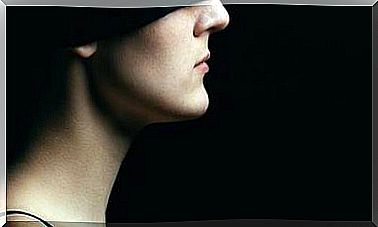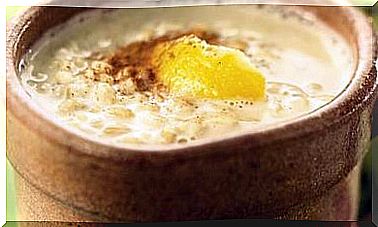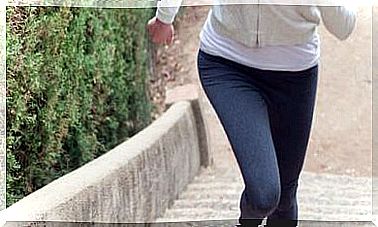Bye, Anxiety! Understand It To Deactivate It
When it appears, the time has come for change, to give room to deep affections and create the conditions for serenity to return to our lives

Sometimes we experience the heartbreaking feeling that our life is losing its meaning.
We look around us and what we discover are obligations and demands, less time for intimacy or the realization that our values and our actions are a puzzle that does not fit. Then we feel anxiety.
Carmen boasts of being punctilious and perfectionist, but she falls easily into despair when she wants to control everything and slides, as if down a slide, towards impotence and lack of control.
Julián always depends on the approval of others and, by pursuing success as his only food, he strays so far from his own nature that he becomes unable to interpret the wise and obvious signals that come from his body.
Magdalena compares herself to the middle world and always loses; it disqualifies what he is and what he does, and inhibits his authentic expressiveness, filling himself with symptoms and physical ailments.
The list, which could be endless, may help us to realize that when the symptoms of anxiety are present, they are signaling us that the time has come to review what I am doing with my life, and to begin to consider whether some things will not have to be changed.
What is anxiety exactly?
For a few years now, the word “anxiety” occupies more and more spaces in the media. It is a term that has come out of the field of clinical psychology and that comes to us as a literal translation of the English word anxiety , although in Spanish we already had the term “anguish”.
We learned about existential anguish in the 1940s thanks to existentialist philosophers like Kierkegaard and, later, Sartre, who associated it with our fear of death, the end of life.
Many times we also experience anguish as a society, when faced with natural disasters, wars or crisis situations.
However, the anguish that has become a public health problem in our modern societies is neither that named by existentialists and that is related to our fear of death, nor that which comes from the horror of tragedies. No.
Contemporary anguish is linked to a deep separation from everything that has always represented the source of joy and the meaning of living: our affections, the loving cultivation of intimate bonds, the connection with nature and the care of the living.
This estrangement produces a very intense oppression and senselessness. And trying to flee from it leads us to a life plagued by over-demands, urgencies and incessant urges.
From stress to calm
Such is the extent of the phenomenon of anxiety today that we have given it a specific name: stress.
This word, which originally designated the biological changes that scientists detected in an organism that was going through some pressing situation, left the laboratories to settle in the middle of family conversations.
What scientists called “general adaptation syndrome” or stress , refers to the adjustments necessary to get out of a situation of risk. Of course, it is assumed that once the fight or flight makes it possible to get rid of the danger, the organism in question returns to its previous state of calm or balance.
But what happens if that risk situation lasts for a long time or indefinitely?
We are organically prepared to face serious or dangerous moments, but we deteriorate a lot if the state of overexertion is prolonged excessively. The experience of threat, the feeling of danger, generate what is known as “signal anguish” or, simply, fear.
Fear promotes a cascade of nervous and hormonal devices that prepare the body to escape or fight.
These devices are very precise and effective in specific and relatively brief situations, but they become especially harmful if they are prolonged for too long periods of time.
What happens in our body?
During the first moments of danger we produce large amounts of adrenaline, which increases our blood pressure, our heart beats much faster, our pupils dilate and many other physiological adjustments of great importance are also altered.
Later, another hormone from the adrenal gland, cortisol, begins to secrete in large amounts, reinforcing and deepening the previous state.
If the situation continues and we enter a state of chronic stress, our body begins to suffer and becomes more vulnerable. High levels of cortisol in the blood make us prone to this state, which began with stress and continued with anxiety, now into depression.
Depression is often the result of chronic stress and anxiety, sustained for long periods of time
Excess cortisol also weakens us, lowers our defenses and the first and fundamental consequence is that it makes us more susceptible to infectious diseases. It is enough to know that these defenses are the same that protect us from the growth of tumor cells, so it could, for example, increase the predisposition to cancer.
Excessive anxiety states trace a path that is easily entered, but difficult to exit.
Coinciding statistics in many countries ensure that almost 50% of the urban population will suffer from some form of anxiety disorder at some point in their lives, and that in 10% of cases it will be a panic attack.
The simultaneous presence of symptoms of anxiety and depression occurs in 58% of patients with anxiety disorders
Symptoms and signs
Anxiety almost always presents itself as a disorder of the body. And any of these symptoms appear
- Dizziness ensues
- Or the sensation of intensely perceiving the beating of the heart;
- The sight is clouded,
- Some shortness of breath appears
- Or an indefinable gastric sensation that prevents us from enjoying food.
The body and its sensations become threatening. They announce the abyss. Some thoughts may accompany the disaster: “I’m going crazy”, “I’m afraid that this will happen again, I can’t stand it anymore”, “something horrible is about to happen”, “this is getting out of hand, I’m afraid of losing control ”.
An ally called fear
But be careful, neither anxiety nor fear are our enemies. On the contrary, fear protects us from risks and dangers, tells us what can be harmful to us, what can harm us or hurt us in a serious or painful way.
Anxiety is the result of not being ignorant or foolish: we know that pain, suffering and death exist, that they are part of our life.
But those are not the real dangers.
Our real enemies are overwhelmed anxiety and dysfunctional fear, both the result of psychological conflicts that escape us, of polluting relationships in which we get involved or of the excessiveness with which we conduct our lives. We must act on them.
Treatment: act on the causes
In psychiatry, anxiolytics are the drugs used to combat the symptoms of anxiety and are among the most widely used in the Western world. But beyond their effectiveness in controlling anxiety symptoms, the abusive or misuse of anxiolytics causes serious physical and psychological disorders.
A lthough anxiolytics attenuate or cancel out symptoms of anxiety obviously leave intact the psychological conflict that persists behind the visible symptoms. It is as if a doctor treats an infection only with fever-reducing medication. It would eliminate the symptom but not the causes of the fever.
Reconnect with the illusion
Overcoming anxiety involves reconnecting with that true source of well-being, which is affection. Acquire again that way of being genuine, strong and warm, the result of maintaining authentic relationships. Then life becomes a promising space of discovery and not a threatening wasteland.
Psychotherapy can help us determine what aspects of our current life separate us from that path.
- What do I want from life
- What prevents me from getting it
- Where am I going today?
There are some very effective treatments that allow a real approach to the causes of anxiety. Among the main ones we can mention Gestalt therapy, cognitive-behavioral therapy or client-centered psychotherapy.
Relaxation and meditation techniques like yoga are also helpful.
But beyond schools, the most important thing is to choose a link with the therapist that helps us to approach our conflicts with confidence, and to believe in the possibility of their resolution.
IF YOU ARE INTERESTED IN MEDITATION …
Escuela Cuerpomente offers you a 100% online meditation training to transform your brain and your life in just 8 weeks. Now you can practice mindfulness from home with guaranteed results.









